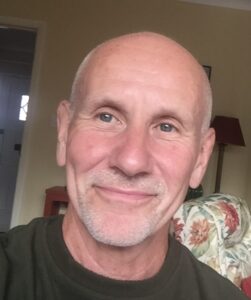 After I attended the Hoffman Process, a friend of mine asked me why I’d chosen to go. I spontaneously replied: ‘I have a blessed life in so many ways, so why am I not happier? Why do I often get the feeling that I drive through life in third gear, knowing perfectly well that there’s a fourth and fifth gear somewhere, but not knowing how to access them.’ That spur of the moment response pretty much summed up the way I felt about myself and my life before I attended the Process.
After I attended the Hoffman Process, a friend of mine asked me why I’d chosen to go. I spontaneously replied: ‘I have a blessed life in so many ways, so why am I not happier? Why do I often get the feeling that I drive through life in third gear, knowing perfectly well that there’s a fourth and fifth gear somewhere, but not knowing how to access them.’ That spur of the moment response pretty much summed up the way I felt about myself and my life before I attended the Process.
The timing of the course seemed right in many ways. I’d recently stopped work and was aware of entering a whole new chapter in my life; a chapter that I wanted to make worthwhile, knowing it would hold many opportunities, but also challenges.
I’d always had rather poor sleep, but after I retired, it seemed to get worse. I’d often wake up in the middle of the night feeling worried and anxious. I thought it strange as I was no longer working, so it seemed to me that I should be less worried about things in general. I had a wonderful partner of 27 years, I was financially secure, and I lived in a house and a place which I loved. Why was I not content, why did I toss and turn in the small hours, feeling tense and jumpy? It occurred to me there were events from my past which, although I’d addressed them in Jungian therapy when I was about 20 years old, were still haunting me. I knew I had to revisit them.
In the run up to this, my sister Helen whom I adored, died. She lived in Switzerland; I live in the UK. She wanted me to be by her side when she died. It was the beginning of lockdown in 2020, and I couldn’t go over. She died at home, surrounded by her friends, the way she’d wanted to – but I wasn’t there. I often thought that if I’d really wanted to go, I could have made it possible. A sentiment of having let her down led to feelings of guilt and shame which were amplified by historic shame and guilt that I’d never resolved. This all added to my reasons for doing the Process. I have a deep-rooted fear of losing people and I knew its roots lay in past experiences.
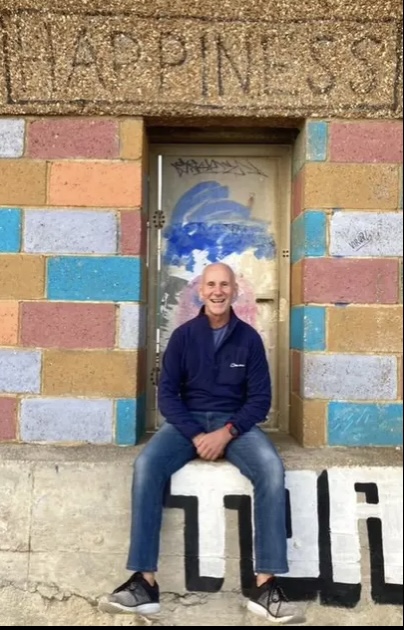 I am the youngest of four children. We lived abroad in different countries for much of my childhood, but as a family, we often spent our holidays at my uncle’s farm in Switzerland. When I was about 8, I was sent on a shopping errand with my cousin Marianne. We walked side by side along a busy road when a camper van drove past and knocked my cousin down. It dragged her along and broke her neck. She died instantly. It was traumatic but neither my parents nor anyone else ever talked to me about it. I felt completely alone and abandoned in my grief and shock.
I am the youngest of four children. We lived abroad in different countries for much of my childhood, but as a family, we often spent our holidays at my uncle’s farm in Switzerland. When I was about 8, I was sent on a shopping errand with my cousin Marianne. We walked side by side along a busy road when a camper van drove past and knocked my cousin down. It dragged her along and broke her neck. She died instantly. It was traumatic but neither my parents nor anyone else ever talked to me about it. I felt completely alone and abandoned in my grief and shock.
A few years later, my sister Brigitte, who was 17 at the time (I was 11) was also killed. She was walking across a zebra crossing when she was knocked down by a car. The change in our family dynamics, which had started with the loss of Marianne, changed even more after Brigitte’s death. My dad threw himself into work, became emotionally distant and on two occasions psychotic, where he had to spend a few weeks in a psychiatric clinic. After his two short stays at the clinic, he was released ‘healed’ but he became obsessed with outlandish political ideas and Catholicism. My mum became rigid, thinner, colder and more and more depressed. I must have realised how toxic the atmosphere and the relationship between my parents had become, as I was happy and relieved to go to boarding school shortly after Brigitte died.
However, it was also the time when I realised that I was gay. In my head, I started to blame myself for the deaths of Marianne and Brigitte and developed a feeling of guilt and self-hatred. ‘Why do all these good people have to die and I, who am worthless and a sinner, am the one to live and survive?’ Feelings of worthlessness, shame and guilt became prominent building blocks of my adolescent years. On the outside I didn’t do too badly. I was able to complete my schooling, go to university and fulfil all that was expected from me. Inside however, a feeling of not being worthy, of not deserving true happiness persisted and became cemented. I came out to my mum shortly before her death. Her reaction was not a positive one. I felt that I’d let her down and hurt her even more. She died unexpectedly not long afterwards. I now know that we would have resolved it over time, if we’d been given the chance, but we didn’t get the time. This all fed into a narrative of self-hatred and worthlessness.
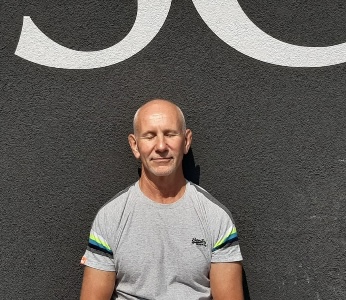 When I finally got to the Process in July 2022, this melting pot of feelings became so much clearer. One interesting aspect of the Process was the realisation that I had a rather distorted sense of masculinity. I have one older brother. We didn’t really grow up together. There’s an age gap of 11 years, and he went to boarding school when I was little. However, I always looked up to him as my role model. He stood for what I thought a man should be like. He’s what many would call a ‘he-man’: ambitious, driven, married three times, likes fast cars, into parachuting etc. I always felt that he’d ‘gobbled up’ all the masculinity in my family and that I was left with the breadcrumbs of virility. I felt simultaneously attracted, intimidated and often repulsed by so-called ‘manly’ men. I tried to mimic them whenever I was around them but it usually fell flat as it was obviously faked. The Process led me to look at family patterns and hence at my take on masculinity. It has since been an interesting and enriching journey, gradually discovering my own definition of it. I’ve come to realise and appreciate my own sense of masculinity which includes a variety of interests, no longer contradicting themselves. They can include interests such as rugby, ballet, arts, football, nature, theatre etc and they can happily co-exist and be part of my self-identification as a man.
When I finally got to the Process in July 2022, this melting pot of feelings became so much clearer. One interesting aspect of the Process was the realisation that I had a rather distorted sense of masculinity. I have one older brother. We didn’t really grow up together. There’s an age gap of 11 years, and he went to boarding school when I was little. However, I always looked up to him as my role model. He stood for what I thought a man should be like. He’s what many would call a ‘he-man’: ambitious, driven, married three times, likes fast cars, into parachuting etc. I always felt that he’d ‘gobbled up’ all the masculinity in my family and that I was left with the breadcrumbs of virility. I felt simultaneously attracted, intimidated and often repulsed by so-called ‘manly’ men. I tried to mimic them whenever I was around them but it usually fell flat as it was obviously faked. The Process led me to look at family patterns and hence at my take on masculinity. It has since been an interesting and enriching journey, gradually discovering my own definition of it. I’ve come to realise and appreciate my own sense of masculinity which includes a variety of interests, no longer contradicting themselves. They can include interests such as rugby, ballet, arts, football, nature, theatre etc and they can happily co-exist and be part of my self-identification as a man.
The Process led me to face these and many other issues. What I’d known in theory I was led to relive emotionally. This culminated in difficult and tough moments where I felt completely despondent. During this often painful journey, however, I was also given tools and techniques to heal and find an inner sense of peace and self-acceptance which I’d never known before. There were many moments of utter beauty where it felt as if a heavy burden had finally been taken off my shoulders. I could see and experience the real me; free from guilt and self-denial. The Process didn’t fix me but gave me a glimpse into what is truly possible if I make peace with myself and embark on this journey of non-judgemental self-realisation. It certainly had its challenging moments but it was also utter bliss, joy, fun and laughter which was incredibly healing in its own way.
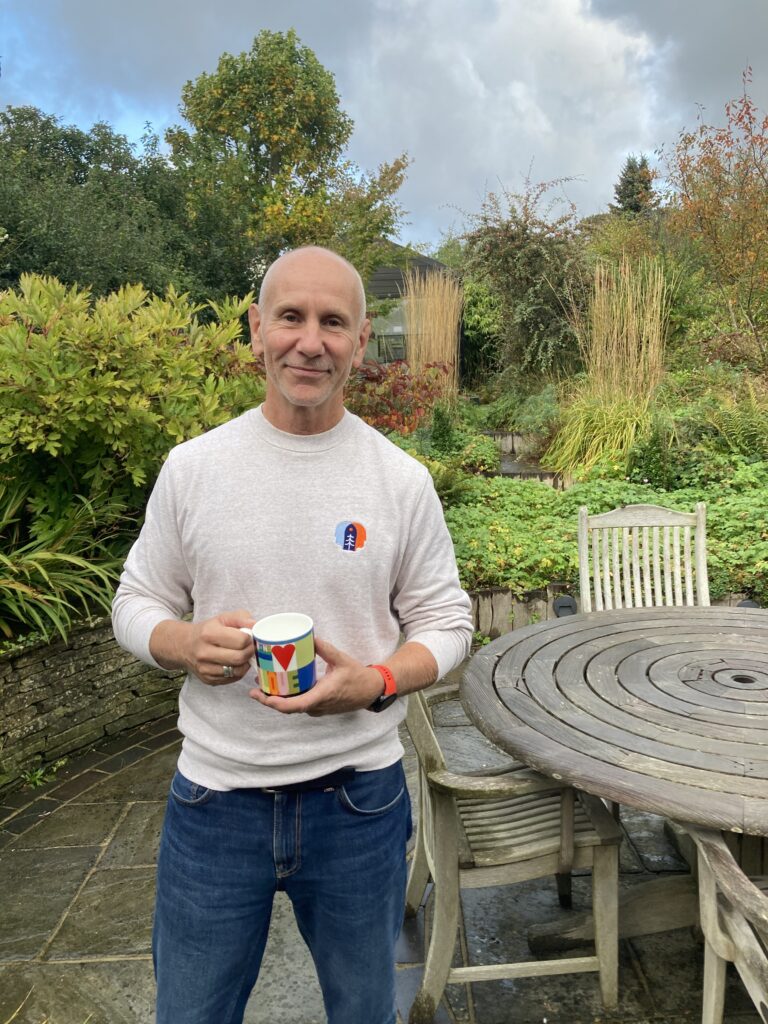 Since doing the Process my internal world has started to shift and there’s a greater sense of self-appreciation and gratitude in many of my days. For some strange reason, I’d always thought that loving myself would lead to selfishness and self-indulgence. What I realised during and after the Process is that it’s the other way round. Starting to love myself has led me to be more empathetic and kinder and generally more open and nicer to people. I’ve started voluntary work and I feel more connected with people and the world around me.
Since doing the Process my internal world has started to shift and there’s a greater sense of self-appreciation and gratitude in many of my days. For some strange reason, I’d always thought that loving myself would lead to selfishness and self-indulgence. What I realised during and after the Process is that it’s the other way round. Starting to love myself has led me to be more empathetic and kinder and generally more open and nicer to people. I’ve started voluntary work and I feel more connected with people and the world around me.
In practical terms it also led to some interesting changes. Before the Process, I usually started the day by checking my phone, reading the news, drinking an incredible amount of coffee and getting gradually more and more angry about the state of the world. Since the Process, my days start differently; I usually brew an Earl Grey tea, walk around the garden, read a book, do my Hoffman techniques or just sit and do nothing. The effect has been pronounced. I begin my days more peacefully and I have started to love and value this time of the day. It’s a new start not only to my day but to the next phase of my life.
We’d like to thank Pierre for sharing his Process Story. You can read more articles with people who have done the Hoffman Process here




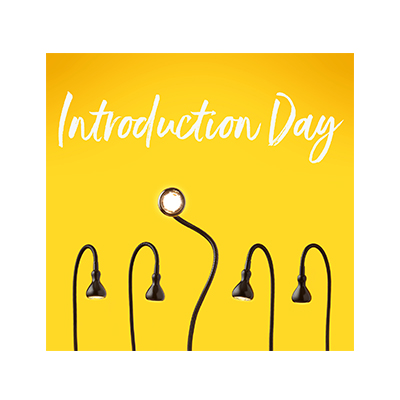

 Sign up to receive monthly newsletters from Hoffman
Sign up to receive monthly newsletters from Hoffman